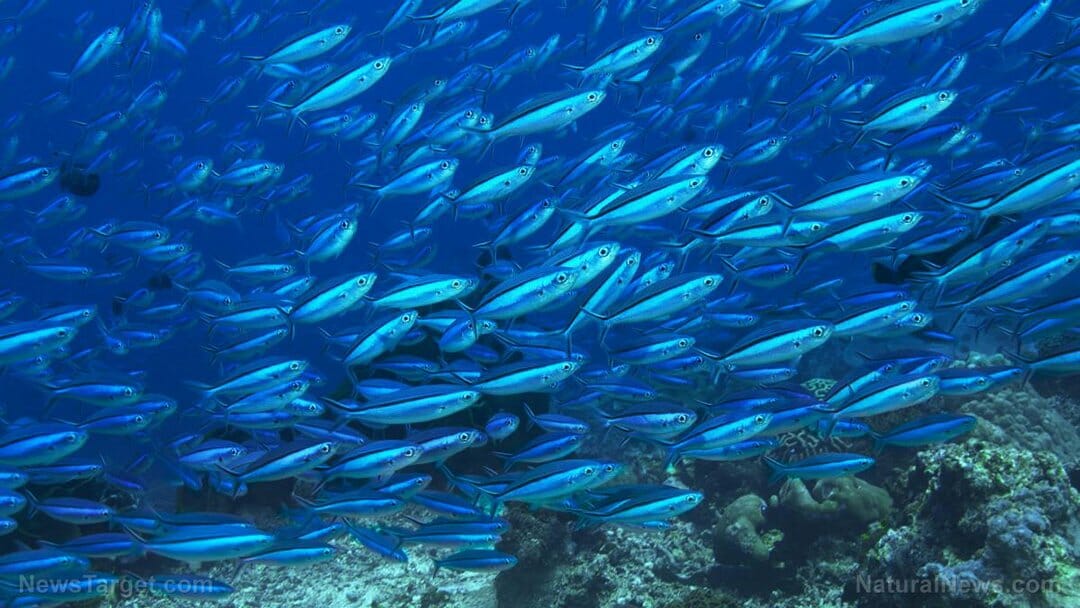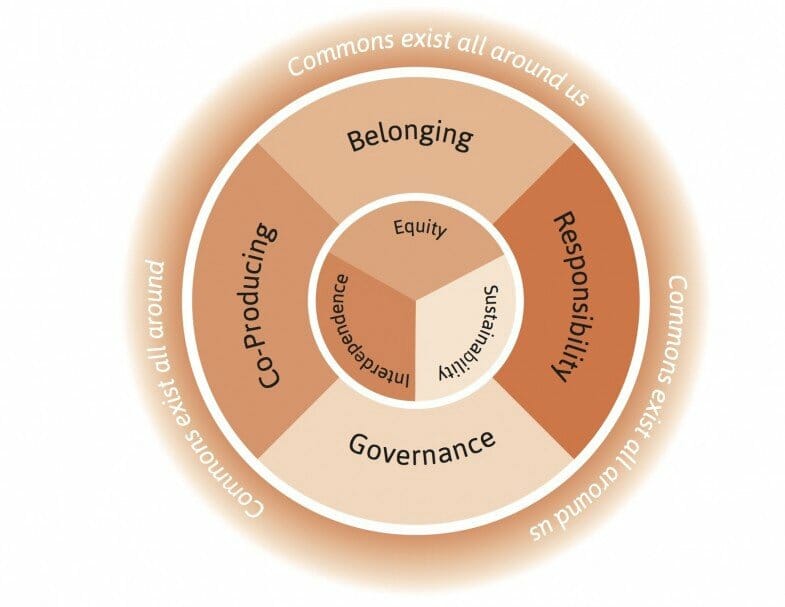
Could we see in the future, a world economics, based more and more in the idea of the commons ? where economics would not be driven by competition but more by cooperation and the sharing of resources?
And what is the commons ? According to a definition by Daniel Christian Wahl it is the practice of ‘commoning’ — to collaboratively hold a natural or cultural resource as a ‘commons’. It is then a way to collaborate in safeguarding the gifts of nature and culture that people share in a particular place and that humanity shares collectively.
What is meant by commons is resources like clean air, clean water, healthy ecosystems functions, abundant bioproductivity, and also cultural heritage including music, art, science, dance, literature, languages, liberator technologies like the open Internet, and, writes Daniel Christian Wahl, “the stories and questions of wisdom that have guided humanity on its journey so far”. There is an estimate, according to Wahl, that two billion people around the world base their economic lives on commonly managed forests, fisheries, water and other natural resources.
This is not new… various indigenous cultures hold that the natural resources generated in a particular place along with cultural traditions and knowledge are not anyone’s ‘private property’ but are regarded as a ‘commons’ held by all, for the benefit of all.
So the commons, could then be a possible alternative to a system based in private ownership that brought us the unsustainable externalities of climate change and extreme inequality we are facing. The situation we face now, was anticipated in a 1968 article called “The Tragedy of the Commons” written by biologist Garrett Hardin. In it, the writer used the metaphor of an unmanaged pasture where its herdsman aiming for growth, keeps desiring to pursue yet another animal to his herd and another. . . .The conclusion reached by each and every herdsman is that e ach man is locked into a system that compels him to increase his herd without limit—in a world that is limited, implies tragedy sooner or later. If each men pursues individuall his own best interests, understood as freedom in a commons, it will end up bringing ruin to all.

Another person that dedicated himself to think about the commons, in Michel Bauwens, the founder of the p2p Foundation. He states:
“The commons consists of any common resource that is available to all (but this notion can be defined locally, or specifically as ‘everybody in category x’), and as such there are many type of commons but basically two: physical resources or man-made. The commons is also a series of specific institutional formats used to manage such common resources. And finally, it is the political/social movement that promotes them.”
By the end of the day, the commons are about relationship and the interbeing. Elinor Ostrom, the first woman to receive the Nobel Prize in economics, is also someone that has worked around a reframing of economics towards collaboration instead of competition. She wrote that “communities of individuals have relied on institutions resembling neither the state nor the market to govern some resource systems with reasonable degrees of success over long periods of time” .
Unfortunately we don’t see more of the commons happen, but rather the oposite, with more enclosure of the commons through privatization and strict government regulation happening. That is the case of the Space Act of 2015 that gives US space firms the rights to own and sell natural resources they mine from bodies in space, including asteroids.
Regardless of this, there has been lately, an increased interest in exploring what a commons- based collaborative economy would look like. Some writers who have dedicated themselves to study it include On the Commons, David Bollier’s News and Perspectives on the Commons and the already cited Michel Bauwens, from the P2P Foundation.
An important point Bollier adds to the discussion is how the commons is not simply a resource but “a resource plus a defined community and the protocols, values and norms devised by the community to manage its resource” (2011).
The key question now, is how ‘commoning’ could be scaled in such a way that the management of the gifts of nature and culture could be done collectively at a global scale.
In his article, Wahl “speaks about the global commons (GC) scenario in which the commoners create infrastructures for global sharing; and the resilient communities (RC) scenario in which the commoners design for increased local self- reliance through sharing and governing resources locally.”
This hopeful solution, can then be the only one that will let us get out of connundrum at which we are, in a system that doesn’t serve us anymore at all and is actually producing profound damage.

Maria Fonseca is the Editor and Infographic Artist for IntelligentHQ. She is also a thought leader writing about social innovation, sharing economy, social business, and the commons. Aside her work for IntelligentHQ, Maria Fonseca is a visual artist and filmmaker that has exhibited widely in international events such as Manifesta 5, Sao Paulo Biennial, Photo Espana, Moderna Museet in Stockholm, Joshibi University and many others. She concluded her PhD on essayistic filmmaking , taken at University of Westminster in London and is preparing her post doc that will explore the links between creativity and the sharing economy.


























